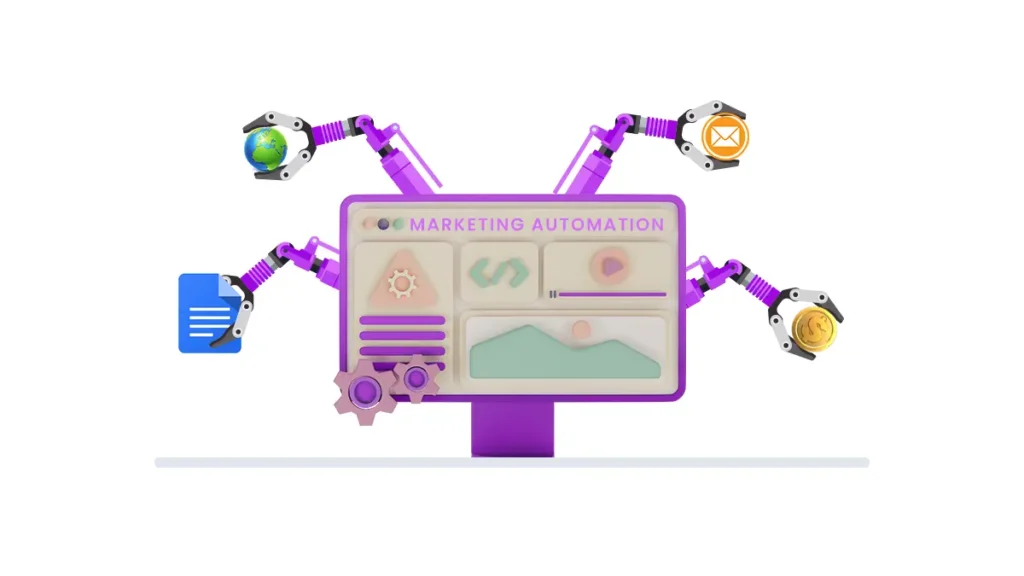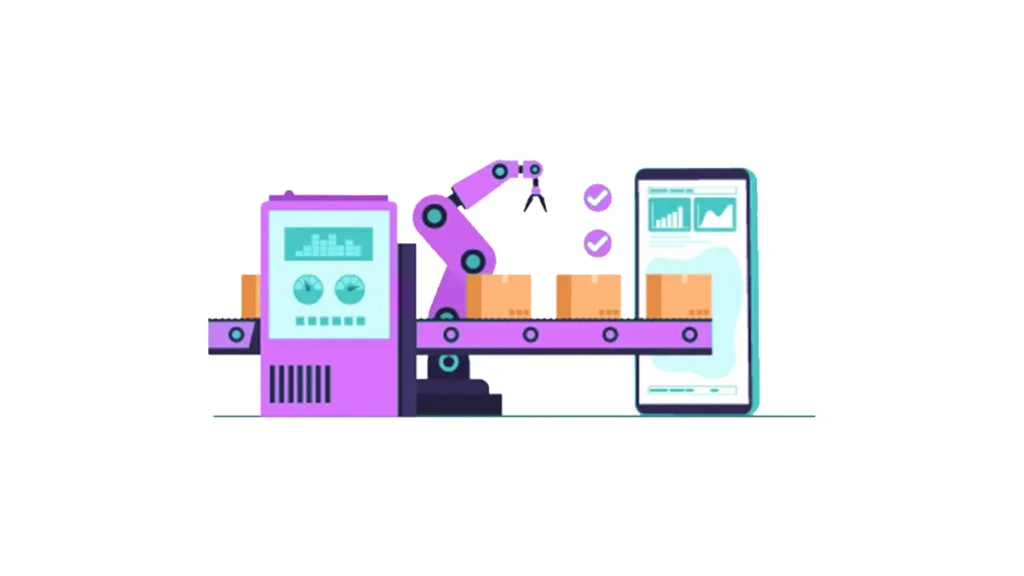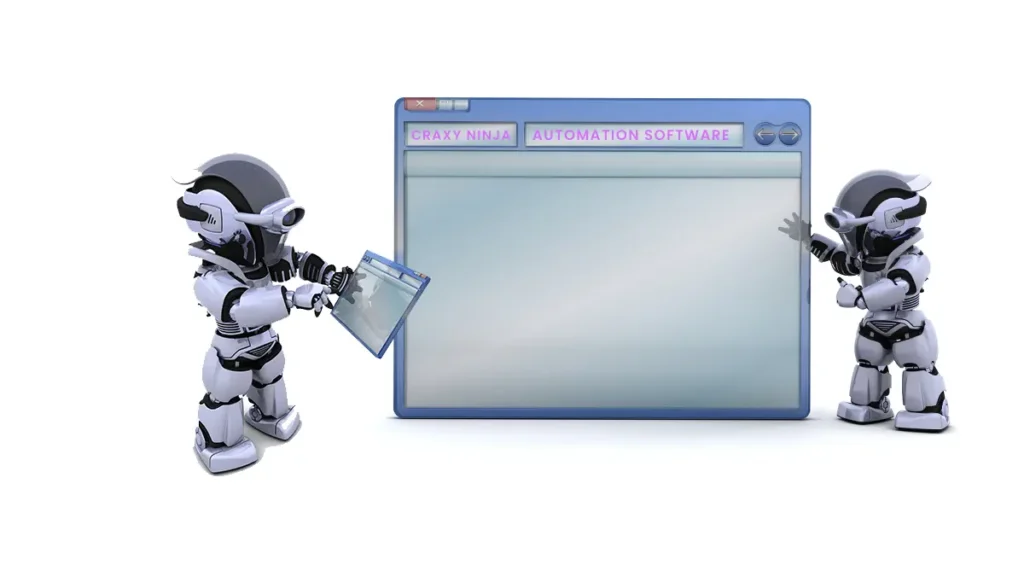In the midst of all the buzz surrounding marketing automation, you might be wondering, “Does it genuinely simplify your life?”
For those who might not be well-versed in the concept, marketing automation is a powerful tool that enables businesses to streamline, automate, and evaluate their marketing efforts. It’s the key to enhanced efficiency and achieving revenue targets.
Now, let’s bring it closer to home. As a marketer, you’re constantly juggling a multitude of tasks—creating, managing, tracking, and analyzing various marketing campaigns. Marketing automation steps in to ease your load by automating those routine tasks. Moreover, it empowers you to act upon valuable analytical insights. It’s a solution that’s not only adaptable to your specific business requirements but also capable of swiftly adapting as your business grows.
Let’s break down marketing automation in simple terms, explore its benefits and challenges, and provide guidance on choosing the right software and implementing it effectively.
Marketing Automation Definition
At its core, marketing automation refers to the use of technology and software to automate repetitive marketing tasks and workflows. These tasks can include email marketing, social media posting, lead nurturing, customer segmentation, and much more. The aim is to save time and resources while improving the efficiency and effectiveness of marketing campaigns.
Imagine you run a small online clothing store, and you want to send personalized emails to your customers on their birthdays. With marketing automation, you can set up a system that automatically sends birthday greetings and offers to your customers without you having to manually send each email. That’s just one simple example of what marketing automation can do.

Benefits of Marketing Automation
Now, let’s look into the exciting part – the benefits of marketing automation.
Time and Resource Savings
Automation allows you to execute marketing tasks 24/7, even when you’re asleep or on vacation. This means you can reach your audience at the right time without burning the midnight oil.
Personalization at Scale
Automation tools enable you to create highly personalized marketing messages based on customer data and behavior. This personal touch can lead to higher engagement and conversions.
Improved Lead Nurturing
Instead of manually tracking and nurturing leads, automation can do it for you. It ensures that leads receive relevant content and follow-up messages, increasing the chances of conversion.
Enhanced Customer Segmentation
Automation software can segment your audience based on various criteria like demographics, behavior, and purchase history. This segmentation allows you to send targeted messages to specific groups, boosting relevance and response rates.
Data-driven Decision Making
Marketing automation provides valuable insights and analytics, allowing you to make data-driven decisions. You can track the performance of your campaigns and adjust strategies accordingly.
Consistency
With automation, your marketing efforts remain consistent, ensuring that your brand’s message is coherent across various channels and touchpoints.
Challenges of Marketing Automation
While the benefits of marketing automation are undeniable, it’s essential to be aware of the challenges that may arise:

Complexity
Implementing marketing automation can be complex, especially for small businesses with limited resources. It requires time and effort to set up and maintain.
Content Creation
Automation requires a steady stream of quality content to be effective. If you don’t have a content strategy in place, automation might not yield the desired results.
Data Quality
Automation relies heavily on accurate and up-to-date data. If your customer data is inaccurate or incomplete, it can lead to miscommunication and missed opportunities.
Cost
High-quality marketing automation software can be expensive. However, the return on investment (ROI) can be significant if used effectively.
Lack of Personalization
Paradoxically, automation can sometimes lead to overly generic messages if not set up correctly. Balancing automation with personalization is crucial.
How to Choose the Right Marketing Automation Software
Selecting the right marketing automation software is a critical decision. Here’s how to make an informed choice:

Define Your Goals
Start by identifying your marketing objectives. Are you looking to increase lead generation, improve customer retention, or streamline your email campaigns? Your goals will guide your software selection.
Budget Consideration
Determine your budget for marketing automation. Different tools cater to various budget levels, so it’s essential to find one that aligns with your financial resources.
Scalability
Choose a tool that can grow with your business. Ensure it can accommodate your future needs as your marketing efforts expand.
User-Friendliness
Look for software that is intuitive and easy to use. You don’t want a solution that requires a steep learning curve for your team.
Integration Capabilities
Ensure that the marketing automation software can integrate seamlessly with your existing tools, such as your CRM system, email platform, and e-commerce platform.
Customer Support
Evaluate the level of customer support provided by the software vendor. You may need assistance with setup, troubleshooting, or ongoing support.
User Reviews
Read reviews from other users to understand the pros and cons of the software. This can provide valuable insights into the user experience.
How to Implement Marketing Automation
Now that you’ve selected the right marketing automation software, it’s time to implement it effectively:
Set Clear Objectives
Define what you want to achieve with marketing automation. Create specific, measurable goals that align with your overall marketing strategy.
Data Cleanup
Ensure your customer data is accurate and up-to-date. Cleanse your database to avoid sending messages to incorrect or inactive email addresses.
Content Strategy
Develop a content strategy that includes a mix of automated and personalized content. Plan your email sequences, social media posts, and other automated campaigns.
Segmentation
Utilize the segmentation capabilities of your automation software. Group your audience based on demographics, behavior, and preferences to send targeted messages.
Test and Optimize
Regularly test different elements of your automated campaigns, such as subject lines, messaging, and timing. Use the insights gained to optimize your campaigns for better results.
Training
Provide training to your team members who will be using the automation software. Ensure they understand how to operate it effectively.
Monitoring and Reporting
Continuously monitor the performance of your automated campaigns. Use the analytics provided by the software to track progress and make improvements.
Marketing automation has the potential to revolutionize your marketing efforts, saving time and resources while delivering personalized and effective campaigns.
However, it’s not a one-size-fits-all solution, and its success depends on your goals, strategy, and execution. By choosing the right software and following best practices, you can harness the power of marketing automation and determine whether it’s worth the hype for your business.







